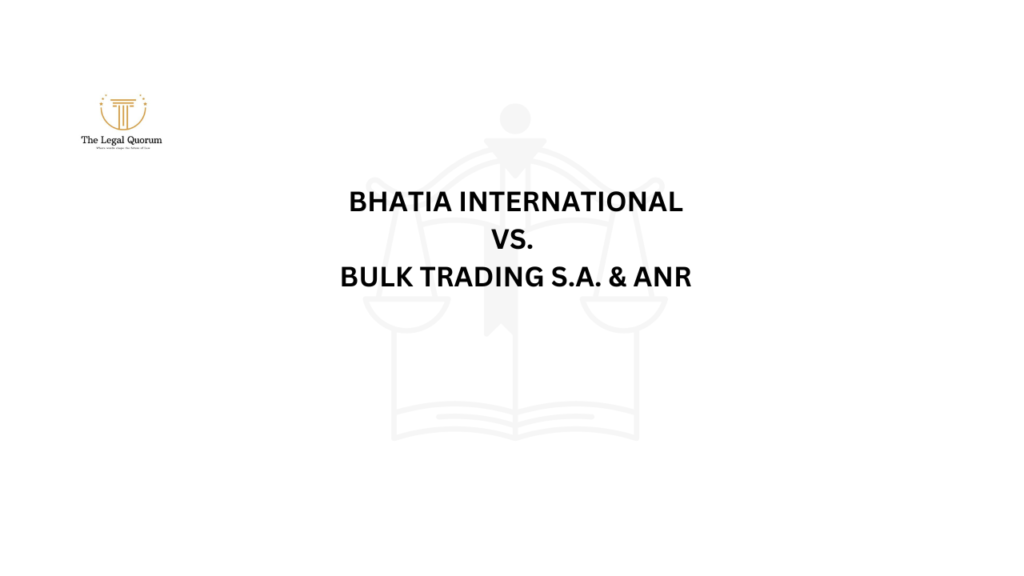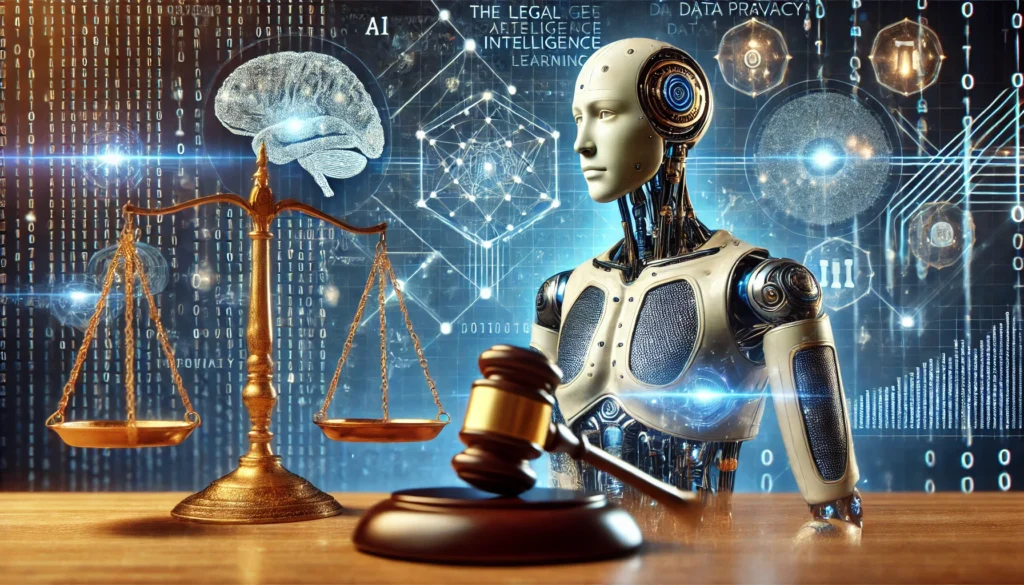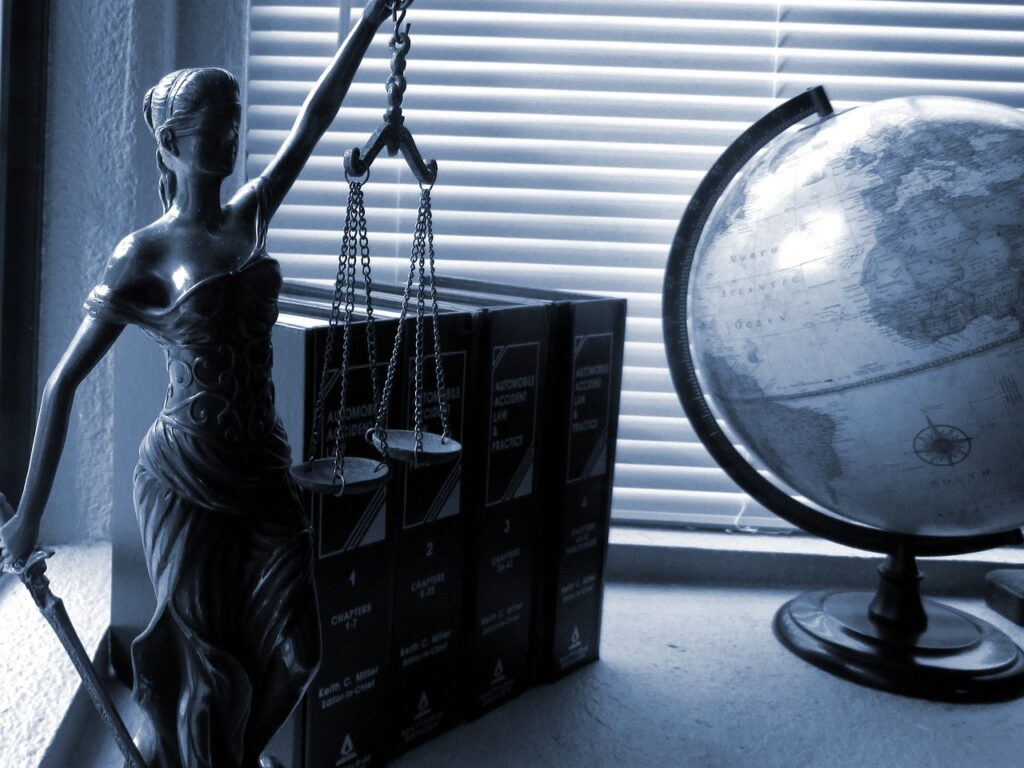Published On: October 29th 2025
Authored By: Akzamol K Ani
Kristu Jayanti college of Law
Abstract:
The rapid advancement of technology has significantly transformed the legal profession, introducing innovations that enhance efficiency, accessibility, and client service. However, the integration of legal technology, including artificial intelligence (AI), automation, and cloud-based systems, raises crucial ethical questions that legal professionals must address. This Article explores the ethical implications of legal tech in practice, focusing on key areas such as data privacy and security, client consent, transparency, and the potential for bias in AI-driven tools. It examines how the use of technology can impact legal professionalism, access to justice, and the attorney-client relationship. Moreover, it discusses the challenges faced by solo practitioners and small law firms in adopting legal tech, balancing innovation with ethical responsibilities. The article also highlights the need for comprehensive regulation and ongoing professional education to ensure that legal technology is used responsibly and in compliance with ethical standards. Ultimately, it argues that while legal technology holds tremendous potential to revolutionize the practice of law, it must be employed in a way that upholds the core ethical values of the legal profession, ensuring justice, fairness, and client trust are not compromised.
Introduction: Understanding the Intersection of Ethics and Legal Technology
The legal profession, traditionally known for its adherence to established norms, confidentiality, and human judgment, is undergoing a profound transformation due to technological advancements. The rise of legal technology (legal tech), including artificial intelligence (AI), machine learning, document automation, and blockchain, is reshaping how legal services are delivered and consumed. While these innovations promise to increase efficiency, reduce costs, and improve access to justice, they also introduce new ethical challenges that legal professionals must navigate carefully.
At the heart of this transformation lies the intersection between legal tech and ethics. Legal professionals are entrusted with safeguarding sensitive client information, ensuring fair and impartial legal processes, and maintaining a high standard of professionalism. As legal tech becomes more integrated into practice, these responsibilities are complicated by concerns around data security, algorithmic bias, transparency, and the potential for technology to undermine the human aspects of legal decision-making.
This evolving landscape requires a balanced approach that embraces the benefits of technological innovation while addressing its ethical implications. How can lawyers ensure that technology is used responsibly without compromising client confidentiality or fairness in legal proceedings? Whatsafeguards are necessary to prevent bias in AI-driven legal tools, and how can clients remain fully informed and give their consent regarding the use of technology in their legal matters?
This article explores the ethical challenges presented by legal tech, focusing on key issues such as data privacy, transparency, access to justice, and the role of AI in legal decision-making. By examining the intersection of ethics and technology, it aims to provide a framework for legal professionals to navigate the complexities of integrating technology into practice, ensuring that innovation serves the interests of justice and upholds the core values of the legal profession.
Understanding Legal Tech: Tools and Innovations
Legal technology, or “legal tech,” encompasses a broad range of tools and innovations that aim to enhance the efficiency and effectiveness of legal services. These technologies, which have been rapidly advancing in recent years, are revolutionizing the way legal professionals work, as well as how clients access and interact with legal services. Below are some key legal tech tools and innovations currently shaping the profession:
Artificial Intelligence (AI) in Legal Research and Decision-Making AI is perhaps the most transformative technology in the legal field. Legal professionals now use AI-powered tools to conduct legal research, which significantly reduces the time spent sifting through vast amounts of case law, statutes, and regulations. AI algorithms can quickly identify relevant precedents, summarize cases, and provide predictive analysis for future rulings.In the realm of decision-making, AI tools can also assist in drafting legal opinions, offering suggestions based on patterns in data, and supporting lawyers in formulating strategies for litigation.
Automation of Document Review and Contract Analysis Document review, traditionally one of the most time-consuming tasks for lawyers, has been revolutionized by automation and machine learning. Legal tech tools can now rapidly analyze, categorize, and extract pertinent information from contracts, court filings, and other legal documents. These tools not only expedite the review process but also reduce human error, ensuring greater accuracy. Contract analysis software, for instance, can flag potential risks, highlight non-compliant clauses, and even suggest improvements or modifications to contracts, saving lawyers countless hours of manual work.
Legal Project Management (LPM) Tools Legal project management software helps law firms and in-house legal teams manage complex legal projects, budgets, and timelines. These tools are designed to improve workflow efficiency, track progress, and allocate resources more effectively. They also facilitate communication and collaboration among team members, clients, and other stakeholders, ensuring that legal matters are handled within scope, on time, and on budget.
Online Dispute Resolution (ODR) Online dispute resolution (ODR) platforms have emerged as a way to resolve legal disputes without the need for traditional courtroom proceedings. These platforms enable parties to resolve disputes through digital means, such as video conferencing, online mediation, and automated settlement tools. ODR has proven especially valuable in handling small claims, family disputes, and international cases, offering a more accessible and cost-effective alternative to litigation.
Ethical Concerns in the Use of Legal Tech
The integration of legal technology in the legal profession brings several ethical concerns that must be addressed to ensure justice and fairness in legal practices. Key issues include:
- The Role of AI in Legal Decision-Making: AI’s increasing role in legal research and decision-making raises concerns about accountability and transparency. AI tools may lack human judgment, which could lead to decisions that overlook important nuances or biases embedded in the data.
- Bias and Fairness in Legal Tech Algorithms: Legal tech systems, particularly those powered by AI, can inherit biases from the data they are trained on. If historical data reflects systemic biases (e.g., racial or gender discrimination), AI tools could perpetuate these biases, leading to unfair outcomes in areas such as sentencing or risk assessment.
- Confidentiality and Data Privacy: Legal tech tools often handle sensitive client information. If these tools are not properly secured or comply with data protection laws (e.g., GDPR), they could compromise client confidentiality and privacy, potentially leading to breaches of attorney-client privilege.
Impact on Lawyers and Legal Professionals: Navigating Change in the Tech Era
The integration of technology into the legal profession is transforming the way lawyers and legal professionals operate. While legal tech offers significant benefits, such as increased efficiency, cost-effectiveness, and enhanced access to justice, it also presents new challenges and ethical dilemmas. Lawyers must adapt to a rapidly changing landscape, where tools like artificial intelligence (AI), machine learning, and automation are becoming integral to legal research, document review, and even decision-making.
This technological shift has implications for the roles of lawyers, potentially altering traditional tasks and responsibilities. On one hand, these advancements can reduce the burden of repetitive tasks, allowing legal professionals to focus on more complex and strategic aspects of their work. On the other hand, there are concerns about the displacement of jobs, especially for junior lawyers, paralegals, and support staff.
Legal professionals must balance embracing these innovations with upholding core values such as confidentiality, accuracy, and client trust. Moreover, they must navigate the ethical responsibilities that come with relying on technology to ensure that technology enhances, rather than diminishes, the quality of legal services provided
Maintaining Legal Professionalism in a Tech-Driven World
As technology increasingly permeates the legal profession, one of the primary concerns is ensuring that the core values of legal professionalism—such as integrity, confidentiality, and ethical practice—are not compromised. While legal tech tools can enhance productivity and efficiency, they also present challenges in maintaining the high standards expected of legal professionals.
First and foremost, lawyers must ensure that their use of technology aligns with ethical guidelines, such as safeguarding client confidentiality. With the widespread use of cloud storage, digital communication, and AI-driven tools, the risk of data breaches and unauthorized access to sensitive information grows. Legal professionals must be vigilant in adopting secure technologies and educating clients about the measures taken to protect their data.
Moreover, legal professionals must remain proactive in using technology to support, rather than replace, their judgment and expertise. While AI and automation can assist in tasks like legal research or document review, they cannot replicate the nuanced understanding and ethical considerations that a human lawyer brings to a case. Lawyers must maintain their role as trusted advisors, using technology as a tool to enhance their service, not replace their judgment.
Lastly, legal professionals must navigate the evolving role of technology in client relationships. Clients are increasingly seeking tech-driven solutions, such as online legal services or automated document creation. Legal professionals must ensure that these tech solutions do not compromise the personal and professional rapport they have with their clients. Transparency about how technology is used, and clear communication about its limitations, will help maintain trust and professionalism in the client-lawyer relationship.
Client Consent and Transparency in Legal Tech Use
In an era where legal technology is becoming an integral part of legal services, ensuring client consent and maintaining transparency in the use of these tools are critical ethical considerations. Legal professionals must be proactive in communicating to their clients how technology will be used in their cases, what data will be collected, and how their privacy will be safeguarded.
Client Consent
Before incorporating any form of legal technology into the service they provide, lawyers must obtain informed consent from their clients. This includes clearly explaining the specific technologies being used (e.g., AI for document review, automated legal forms, or data analytics tools), how these technologies function, and the potential risks and benefits. Clients should have a thorough understanding of the technology’s role in their legal matters to make an informed decision about whether they are comfortable with its use.
Transparency in Technology Use
Transparency is essential in ensuring that clients have full visibility into how their legal data is handled. This means providing clear, accessible information about how their personal and case-related data will be stored, processed, and shared. For example, cloud-based platforms used to store client information must comply with privacy regulations, and clients should be aware of the measures taken to protect their data from breaches or misuse.
Ethical Responsibility
Transparency and consent are not just about legal compliance; they are fundamental to maintaining trust in the client-lawyer relationship. Clients rely on lawyers to act in their best interests, and transparency ensures that clients’ expectations align with the services provided. Failing to adequately inform clients about the use of legal technology or to obtain proper consent may lead to ethical violations or legal liabilities, undermining the lawyer’s professional responsibility.
Navigating Ethical Challenges for Solo Practitioners and Small Law Firms
Solo practitioners and small law firms face unique ethical challenges when adopting legal technology. While these tools offer the potential to enhance efficiency, reduce costs, and improve access to justice, they also introduce complexities that require careful consideration. These challenges often revolve around balancing innovation with the preservation of ethical standards, maintaining a high level of client service, and ensuring compliance with evolving regulation
Access to Legal Tech and Resource Constraints
One of the primary challenges faced by solo practitioners and small law firms is the financial and resource limitations that may hinder their ability to invest in the latest legal technology. Unlike large firms, which can afford dedicated IT departments or expensive software solutions, smaller practices often need to make tough decisions about which tools to adopt. This creates a risk of falling behind technologically, limiting the firm’s ability to compete effectively or provide the best service to clients.
Maintaining Client Confidentiality and Data Security
For solo practitioners and small law firms, ensuring the confidentiality and security of client data can be particularly challenging when using cloud-based or third-party tech solutions. These smaller firms may lack the resources to implement sophisticated cybersecurity measures, increasing the risk of data breaches or unauthorized access to sensitive client information.
Small firms must take extra care in vetting the technology they use, ensuring that providers comply with industry standards for security and data protection. Ethical obligations require lawyers to safeguard their clients’ data rigorously, and failing to do so could lead to reputational damage, legal consequences, and a breach of trust with clients.
Adapting to Technology without Losing Personal Touch
Small law firms often distinguish themselves by offering personalized, client-centered service. The use of legal technology, such as automation tools or AI-driven services, should not undermine the personal connection between attorney and client. While technology can help handle routine tasks like document creation or legal research, lawyers must ensure that it does not diminish the quality of legal advice or the overall client experience.
Conclusion:
As technology continues to transform the legal profession, it is crucial for legal professionals to adopt legal tech solutions responsibly. By prioritizing ethics, transparency, and client consent, the legal industry can harness the benefits of innovation while safeguarding the core values of confidentiality, fairness, and professionalism. Ensuring that legal tech enhances rather than replaces human judgment and expertise will be key in maintaining the integrity of legal services.Ultimately, a responsible approach to legal tech will empower the legal profession to offer more efficient, accessible, and equitable services, while upholding ethical standards that protect clients and the justice system as a whole.
RBC Dominion Securities Inc. v. Merrill Lynch Canada Inc. (2008)
Facts:
In this case, RBC Dominion Securities Inc. sued Merrill Lynch Canada Inc. for breach of contract, alleging that Merrill Lynch had misused confidential information related to a potential merger. The dispute involved the improper use of emails and electronic communications in the exchange of sensitive corporate information. Merrill Lynch argued that the emails and electronic documents exchanged were not governed by the traditional standards of evidence due to the potential for tampering or misinterpretation.
Issue:
The primary issue in this case was whether emails and other electronic communications could be treated as reliable evidence in a legal dispute, particularly concerning confidentiality and the potential misuse of electronic records. The case also addressed the ethical implications of using digital communications for confidential business matters in the legal field.
Judgment:
The court ruled that emails and electronic communications could indeed be used as reliable evidence in legal disputes, provided proper precautions were taken to ensure their authenticity and security. It emphasized the need for businesses and legal professionals to adopt secure systems for managing digital communications and protect sensitive information from misuse or unauthorized access. This case reinforced the legal recognition of digital tools and communications as legitimate and enforceable in the legal process.
People v. Stengel (2018)
Facts:
In the case of People v. Stengel, the defendant, Michael Stengel, was convicted of attempted murder based, in part, on a risk assessment tool (COMPAS) used during sentencing. The tool, which uses algorithms to assess the risk of reoffending, was generated as part of the sentencing process. Stengel challenged the use of the COMPAS risk assessment on the grounds that it was based on an algorithm that was not transparent, could be biased, and lacked an understanding of how the decision was made.
Issue:
The primary issue in this case was whether the use of an algorithmic risk assessment tool like COMPAS in sentencing decisions was ethical, particularly in terms of fairness, transparency, and the potential for bias. Stengel argued that relying on such a tool without understanding how it worked and its potential biases violated his rights.
Judgment:
The court upheld the use of the COMPAS risk assessment tool in the sentencing process, stating that it was one of many factors considered by the court. However, the court acknowledged concerns about the transparency and potential biases of the tool, noting that future cases might require more scrutiny of algorithmic tools. While the decision did not invalidate the use of AI or risk assessment tools, it highlighted the ethical concerns regarding their use in legal decisions, particularly the lack of transparency in how these algorithms operate and the potential for bias. The case raised important questions about the ethical use of AI and automated tools in the legal system.




